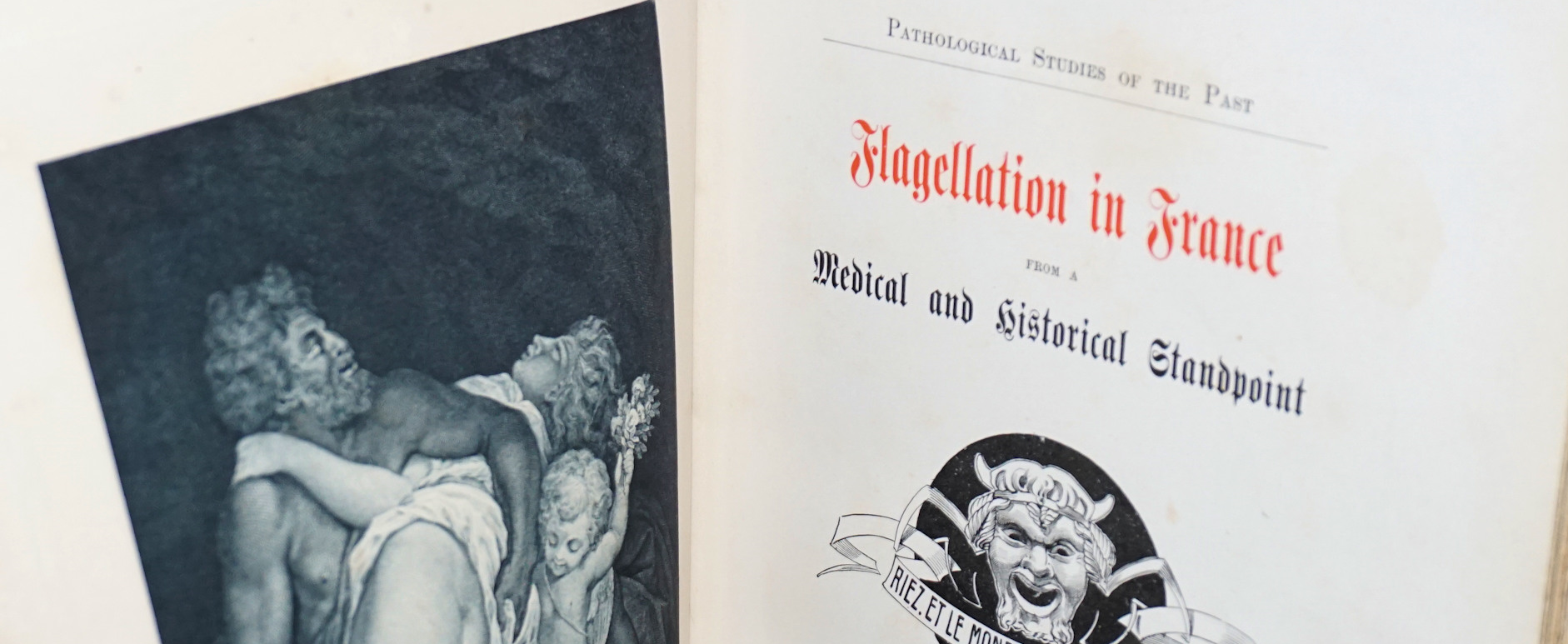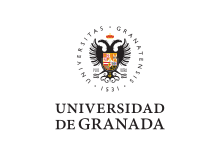 Monday 17th and Tuesday 18th February 2020
Monday 17th and Tuesday 18th February 2020
Granada, Spain
Click here for practical information for delegates.
Click here for presenters’ biographies
Sex, Science and Censorship Draft Programme
Day 1
9-9.30 Welcome
9.30-11.30 Media and Policing in Sciences of Sex
Chair: Sarah Bull, Ryerson
Birgit Lang, Melbourne — ‘Sexology at the Police Exhibition: Photography Between Sex
and Violence’
Kate Davison, Melbourne — ‘Aversion Therapy and its “Stimuli”: The Acquisition,
Production, and Reception of Pornographic Materials in the Post-War Treatment
of Homosexuality (1950s-1970s)’
Fay Brauer, East London — ‘Circumventing Censorship: Virilizing Victorian
Homoeroticism after Labouchère’.
Melissa Adler, Western — ‘Repression in the Cultural Record’
11.30-12 Coffee
12-2 Sex Education, Intimacy, and Youth
Chair: Agata Ignaciuk, Granada
Michael Sappol, Uppsala — ‘“Awakened by a worthy and attractive object”: Anatomy,
minstrelsy and the first anatomically explicit sex education book for children’
Caroline Rusterholz, Cambridge — ‘Youth Sexuality, Public Health Campaigns, and
Censorship: The Brook Advisory Centres (1965-1985)’.
Katie Snow, Exeter — ‘Denise Perrigo and the Politics of Maternal Sexuality’.
María Jesús Santesmases, Madrid — ‘No Censorship, No Bodies: Foetuses’
Photographs in the Late Franco Dictatorship’.
2-3.30 Lunch
3.30- 5.30
Sex, Science, and the Nation State
Chair: Lesley Hall, Wellcome Library / University College London
Silvia Armenteros Fuentes, Granada — ‘Sexual Science in (Post)Censorship Spain:
1970-1980’.
Arnav Bhattacharya, Upenn — ‘Sexology – A Purely Scientific Discipline? Obscenity,
Censorship, and Sexology in 20th Century South Asia
Agnieszka Kościańska, Warsaw — “It will cause an official protest from the Episcopate”:
Sexological Self-Censoring between the Communist State and the Catholic Church
Sarah Leonard, Simmons — ‘“Obscene Publications and Unproven Medical Remedies”
in the Files of Prussian Authorities, 1810-1870’.
5.30-7pm Poster Session
- Brian M Watson, Kinsey Institute, Indiana University, “Nature rarely deals with discrete categories:” The Kinsey(s) and the Ghosts of Sexualwissenschaft”
- Mallory Szymansky, Alfred University, “Talking about Sex in the Clinic: Treatment for Neurasthenia in Late-19th-Century United States”
- Donna Drucker, Technische Universität Darmstadt, “Censorship in Contraceptive Research: Dr. Hannah Stone in the Birth Control Clinical Research Bureau, 1925–1939”
- Abbey Rees-Hales, University of Birmingham, “Reserved for “artists, intellectuals, bibliophiles and similar persons”: high-end erotica and elitist assurances in the Weimar Republic”
8pm Dinner, El Piano
Day 2
9.30-11.30
Sexology and the Obscene
Chair: Jen Grove
Francesca Campani, Padua and Lincoln: “In Science the Obscene Does Not Exist:
Blurring the boundaries between Science and the “Obscene” in Paolo
Mantegazza’s Sexology (1850-1910).
Kate Fisher and Jana Funke, Exeter: ‘“Are We to Treat Human Nature as the Early
Victorian Lady Treated Telegrams?” British and German Sexual Science,
Investigations of Nature, and the Fight Against Censorship’.
Micaela Pattison, Sydney/ACU: ‘Sex, Censorship, and Gender: (Self-)Censorship and
Plagiarism as Vehicles for the Propogation of Sexual Science in Interwar Spain’.
Kateřina Lišková, Masaryk: ‘Scarce pictures: Sexual Imagery Presented by Sexologists
and Invented by People in Late-Socialist Czechoslovakia’.
11.30-12 Coffee Break
12-1.30 Final Group Discussion
1.30-3 Lunch
3-6 Excursion to Alhambra
Conference Outline:
The burning of Magnus Hirschfeld’s library and archive from his Institut für Sexualwissenschaft by the Nazi party in 1933 is one of the most frequently discussed examples of modern scientific work falling victim to suppression. From Richard von Krafft-Ebing’s use of Latin and Greek for sexual terms in his Psychopathia Sexualis (1886), through to the ‘Spanish Kinsey’ Ramón Serrano Vicens’s 14 year struggle to publish his 1961 study on female sexuality, the history of censorship—both externally imposed and self-performed—is interwoven with the history of scientific attempts to understand sex in a variety of political, national and religious contexts.
Attempts to justify scientific work in the face of the threat of censorship pose fundamental questions about how medical and scientific authority have been defined and secured. Modern constructions of the “obscene” and the “pornographic” created categories distinct from expert knowledge or material of scholarly merit in such a way as to draw new lines between legitimate science and prurient interest. Sexual scientists were among those who had to walk this tightrope, especially if they wanted to promote scientific or medical credentials while reaching out to a non-medial audience. And yet diverse engagements with the topic of sex within research, writing and publication highlight the blurred boundaries between the modern categories of “obscenity” and “science”, the “lascivious” and the “intellectual”, as materials and ideas have shifted between these categories in different contexts, at different times, and for different functions.
The phenomenon of censorship and the category of the obscene have also arguably added value to the scientific study of sex. As Foucault has shown us, investing in a narrative of previous societal repression of sex allows new work to present itself as ground-breaking, particularly within a framework that narrates movement away from nineteenth-century prudery and suppression toward liberation and objective understandings of sexuality. Scientists have promoted the idea that access to sexual knowledge should be restricted to scientific fields.
In this sense, censorship has not only acted as a threat to the circulation of sexual scientific knowledge, but also as an internal strategy to regulate access to, and reinforce the authority of, sexual science, as well as at times to enhance the desirability of material: inviting censorship (and particularly an association with eroticism) could be part of a populist, if not commercial, strategy.
This conference seeks to explore the interconnected history of the scientific study of sex – understood as a broad range of activities – and censorship, omissions, suppression, segregation, expurgation, bowdlerization, or classifications of obscenity, blasphemy or pornography. Key questions might include, but are not limited to:
- How have materials or ideas relating to sexual science been subject to censorship, either externally or self-imposed?
- How does the relationship between censorship and sexual science relate to different political, religious and national contexts?
- How was sexual knowledge affected or threatened by censorship, circulated and translated across national, cultural and linguistic borders?
- How does censorship relate to attempts to justify or undermine the study of sex, particularly as a ‘scientific’ or ‘medical’ venture or its claims of objectivity?
- Has there been a value for sexual scientists in censorship? To what extent has censorship been enabling?
- Have certain topics been the subject of greater anxieties and/or suppression, e.g. relating to particular sexual behaviours, to certain sub-groups, cultures, or races?
- Were certain media subject to greater censorship, e.g. photography, film, literature, etc.?
- How does censorship relate to the popularization of sexual science? Can an examination of sexual science through the lens of censorship open up new perspectives on the dissemination of sexual scientific knowledge across diverse audiences?
- How does the censorship of the sciences of sex connect with the censorship of other sciences?
- How does the history of sexual science illuminate the wider history of censorship, obscenity and pornography?
- What are the challenges of doing the history of censorship of the sexual sciences today? In what ways and in which political contexts are the practices of censorship present in historiographic scholarship on sexual science?
Call for papers for this conference has now closed.
Click here for practical information for delegates.
We also have a Facebook event page!
The conference is being organised by Dr Ágata Ignaciuk (Warsaw/Granada), Dr Sarah Bull (Ryerson) and Dr Jen Grove (Exeter).
Local organising committee: Prof. Teresa Ortiz-Gómez, Prof. Nuria Romo, Dr Ágata Ignaciuk and Silvia Armenteros.
This conference is generously supported by the Wellcome Trust-funded Rethinking Sexology project and the University of Granada.



